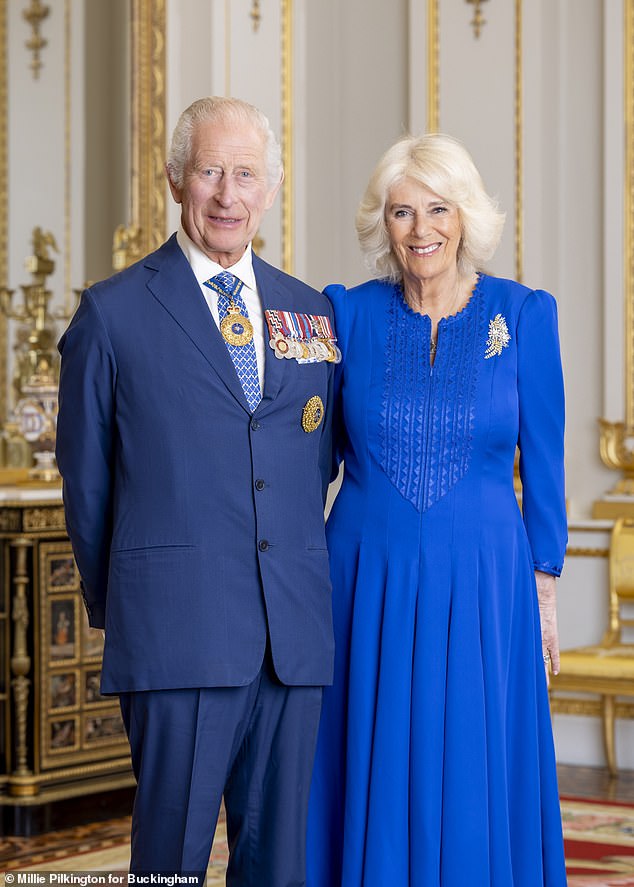The King will not stand in the way if Australia seeks to replace him as head of state, he has told republican campaigners.
As Charles prepares for a historic visit to Australia, he told anti-monarchists he will not interfere if the people of Australia one day vote to remove him.
In a letter to the Australian Republic Movement (ARM), which had written to Buckingham Palace to request a meeting with the monarch when he arrives on his historic royal tour next week, his deputy private secretary emphasized the “deep love and affection” of His Majesty for Australia. .
Dr Nathan Ross added: “Please be assured that we have taken your views on this matter very seriously.
“Her Majesty, as a constitutional monarch, acts on the advice of her ministers and therefore whether Australia becomes a republic is a question for the Australian public to decide.”
The official Australian portrait of His Majesty King Charles III and Queen Camilla
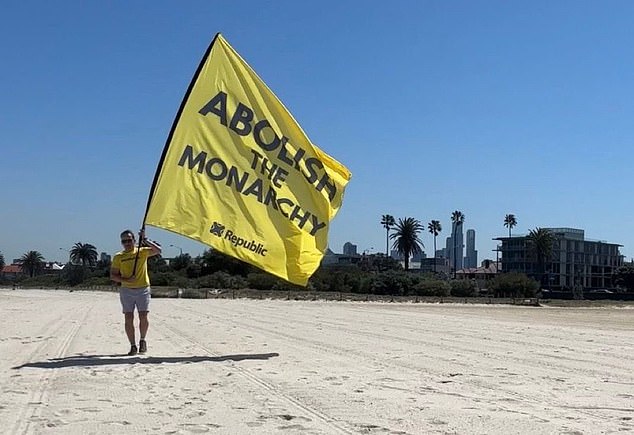
Graham Smith of campaign group Republic ready to protest against monarchy in Australia
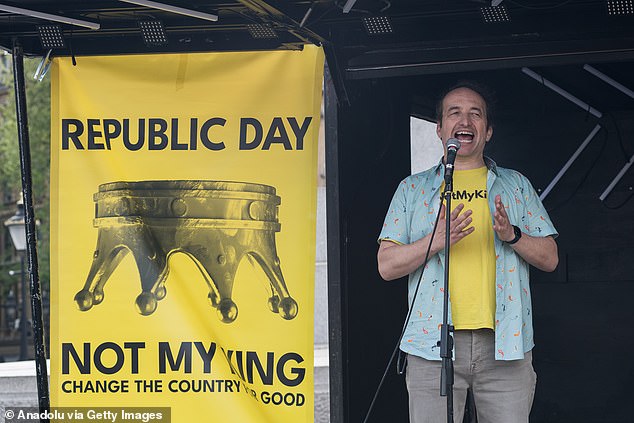
Republic chief executive Graham Smith speaks during an anti-monarchy demonstration on the weekend of the first anniversary of the coronation of King Charles III.
He also praised them for their “consideration” in writing, saying it was “warmly appreciated.”
ARM itself had praised the “important contribution” of the Royal Family, saying many Australians would continue to “respect the British monarchy” and wanted the two countries to remain “the closest friends and allies”.
But they insisted in their letter that it was time for their country to put itself “on an equal footing with other nations” internationally and said there was growing support for the move.
The last referendum on the issue was held in 1999 and almost 55 percent voted against the removal of the head of state.
However, in January the Australian government said it had indefinitely suspended further plans for a vote, with ministers saying it was “not a priority”.
The King’s sentiments do not represent a change in policy, but the fact that he does so on the eve of such an important tour shows the new maturity of the debate on the issue. The strength and longevity of the Royal Family’s ties with Australia are such that there is no doubt any such move would be met with disappointment.
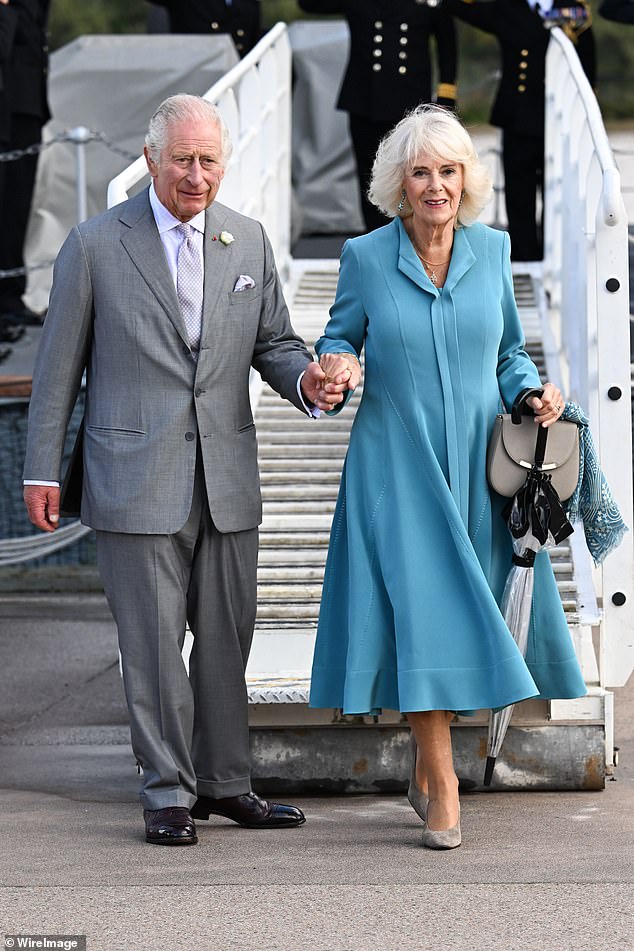
King Charles III and Queen Camilla disembark from the Royal Navy frigate HMS Iron Duke on September 22 last year in Bordeaux.
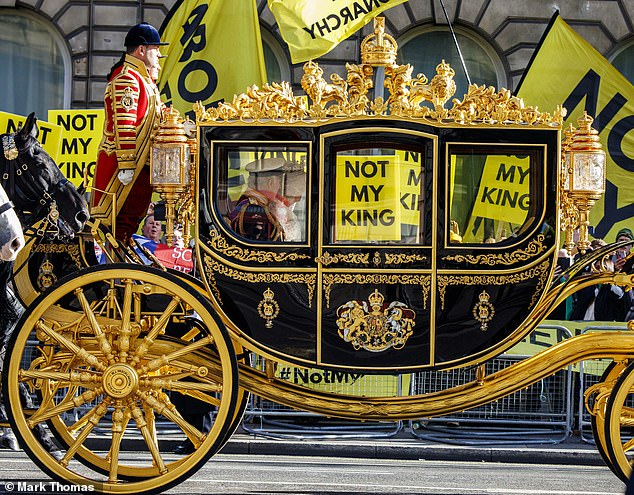
Charles III and Queen Camilla walk past a group of anti-royalists holding “Not My King” signs during the state opening of Parliament.
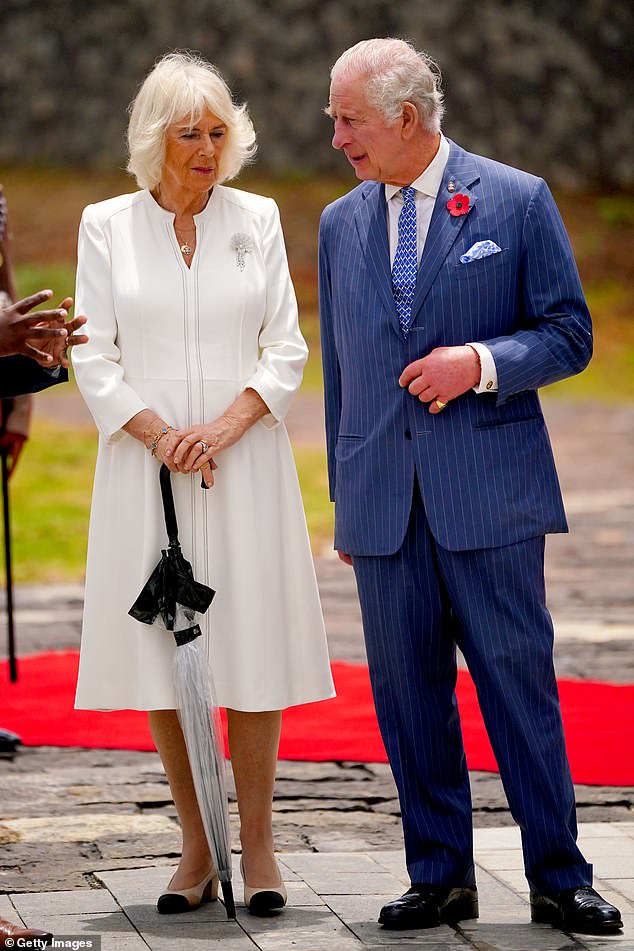
King Charles III and Queen Camilla visit the Uhuru Gardens on October 31 last year in Nairobi, Kenya
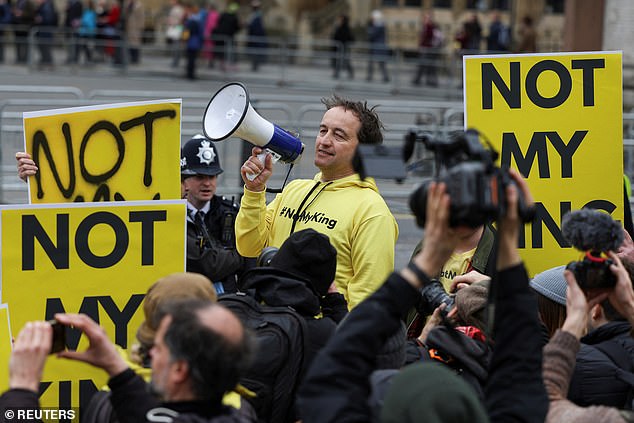
Graham Smith speaks during an anti-monarchy protest before the Commonwealth Service on March 13 last year.
But as the King makes clear through his private secretary, it is something he would accept.
Currently, 14 countries around the world maintain the British monarch as head of state.
The most recent country to sever ties was Barbados, which became a republic in 2021 but remains a key Commonwealth ally and enjoys warm relations with the United Kingdom.
In fact, as Prince of Wales, Charles represented the late Queen at her independence celebrations and this week had an official call with the country’s prime minister.
Jamaica has made it clear that it also wants independence and is set to vote on the issue later this year, followed by other nations. But countries such as Australia, New Zealand and Canada are considered much less likely to cut the umbilical cord.
The King’s representative in Australia, Governor-General Sam Mostyn, recently said the King has “great respect” for Australia and wants to celebrate the best of the country where he can.
“He wants to see modern Australia, engaging with communities broadly, albeit within a tight time frame, given his health,” she said.
Ms Mostyn described the King as a “very kind man” who was “deeply committed to Australia’s success in his own right”.
ARM co-chair Nathan Hansford told the Mail his invitation to discuss the matter with the King was “politely declined”, adding: “The concept of having an Australian monarch does not sit well with the majority of Australians in 2024. We are a “A wonderfully diverse nation that most people feel is not represented by a monarch.”
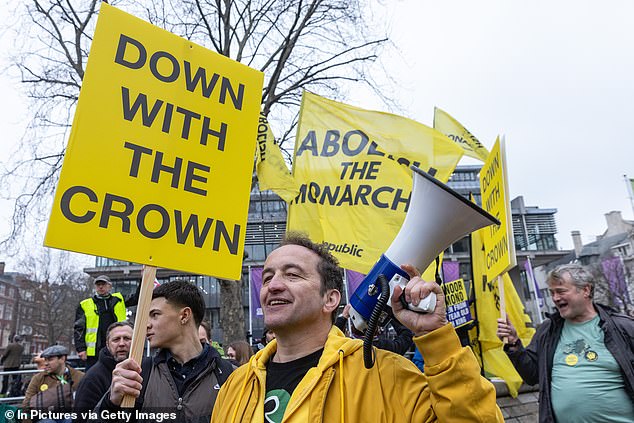
Graham Smith, chief executive of Republic, pictured at an anti-monarchy protest outside Westminster Abbey on March 11.
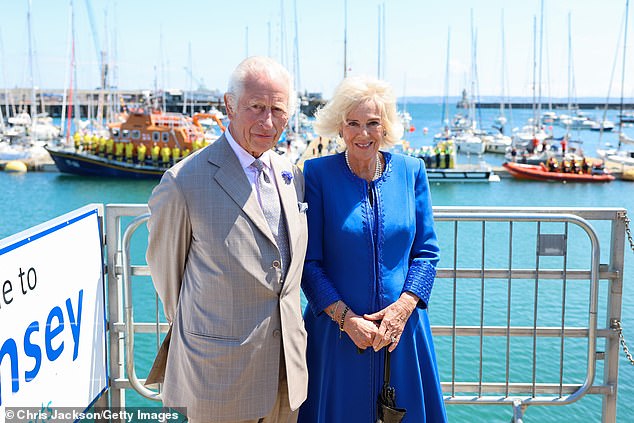
King Charles III and Queen Camilla pose in front of RNLI lifeboats during an official visit to Guernsey on July 16.
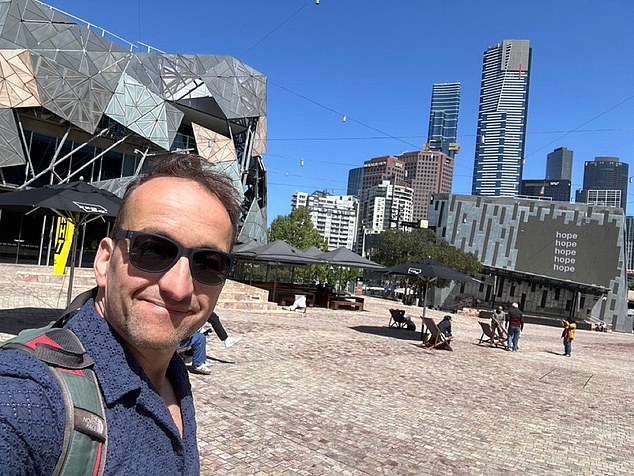
In the photo: Smith in Australia ready to protest against the monarchy
When the king arrives on Friday, accompanied by Queen Camilla, for a six-day official visit, it will not only be his first as sovereign, it will also be the first time a British king has visited the country.
The only ruling monarch in recent history to visit was the late Queen Elizabeth, who remains very popular there.
His death in 2022 led some to suggest there could be a rise in support for the anti-monarchy cause.
However, according to a poll by The Australian, the national appetite for a republic has grown by just 4 per cent in a decade, which the newspaper described as “hardly a tsunami of support”.
The country’s current Prime Minister, Anthony Albanese, although enjoying a personally “warm” relationship with King Charles, has made no secret of his desire to hold another vote.
He previously said a republic is “inevitable” and named the country’s prime minister dedicated to the mission.
But earlier this year, Albanese, who will meet the King during his visit, put the issue on the back burner and the ministerial role was ruled out.
Charles and Camilla’s welcome is expected to be disrupted by anti-monarchy activists, but not by Australians.
British group Republic has sent its chief executive Graham Smith to organize “Not My King” protests at royal engagements in Sydney and Canberra.
Ironically, this directly contravenes the wishes of Australian republican activists.
ARM’s Mr Hansford told the Mail: “We are not protesting, we are focused on driving the conversation within Australia about our independence.”
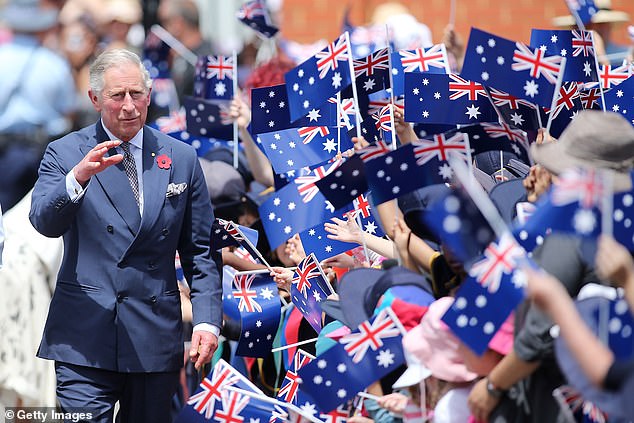
The King is greeted by schoolchildren during a visit to Kilkenny Primary School on November 7, 2012 in Adelaide.
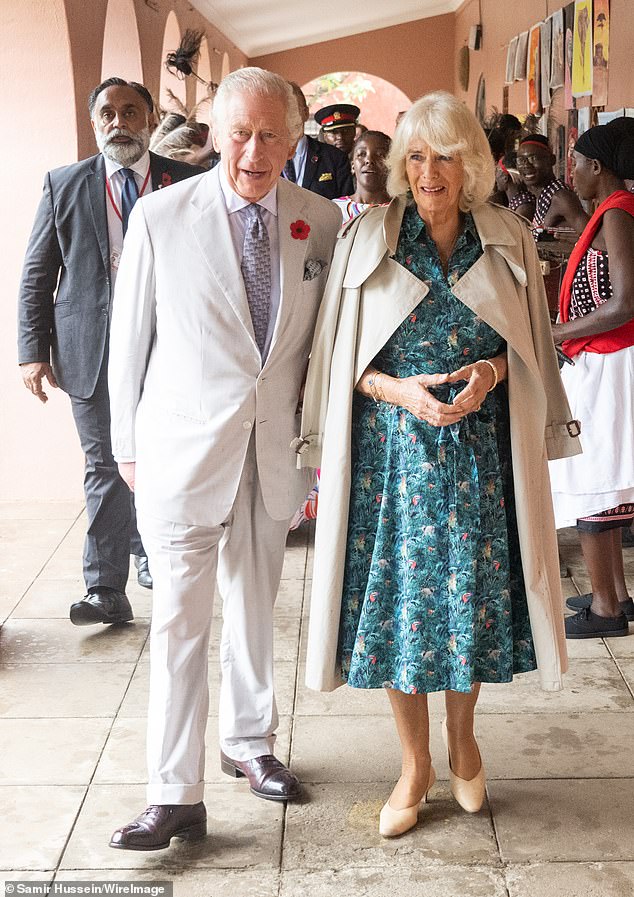
King Charles III and Queen Camilla during a visit to Kenya last year
Smith has already posted a series of selfies on social media in recent weeks, including waving a flag alone on a beach, during his own tour of the country.
An Australian citizen living in the UK, he insisted he was not there campaigning for an Australian republic. He says he wants to “challenge the King’s role in representing the UK abroad” and raise awareness that Britain is not a “royalist nation”.
When asked how he was paying for his trip, Mr. Smith replied that it was funded by members and donors, but that he “kept costs to a minimum” by staying with friends.
News that a British group with no ties to Australia is trying to disrupt the royal visit has not been welcomed by some and is believed to significantly increase the cost of policing the tour.
Philip Benwell, national president of the Australian Monarchist League (AML), said: “This is clear foreign interference in the way Australians relate to their sovereign head of state, particularly through British funding for posters and materials. designed to create division in our country. “No foreign organization should ever be allowed to interfere with our democracy.”
Describing Mr Smith’s behavior as arrogant, he continued: “We only hope that the protests proposed by republicans, particularly by the head of the (British) Republic, do not detract from the visit or deter people from attending.” He may have ties to Australia, but we don’t want him here.
He also praised the King’s “bravery” in attempting the “arduous” journey despite his cancer diagnosis.
Benwell said there was enormous “goodwill” for the visit and affection for the Royal Family in general.
NSW Police said: “A police operation will be carried out during the visit.” The priority is to ensure the safety of visiting dignitaries and the community.’

